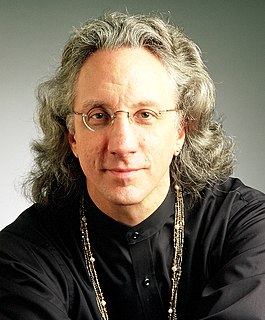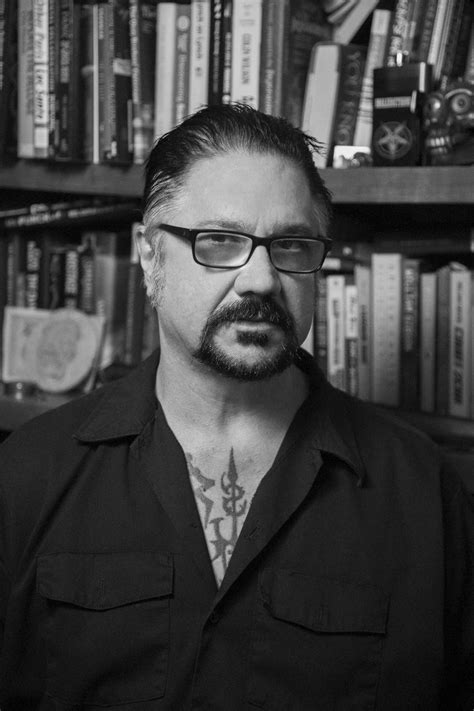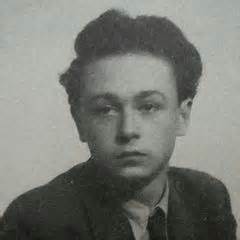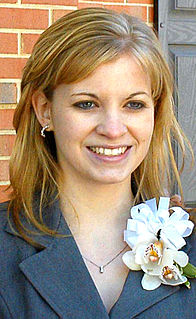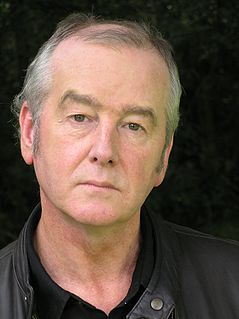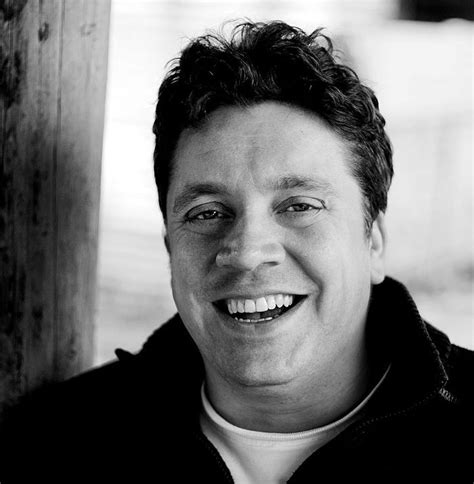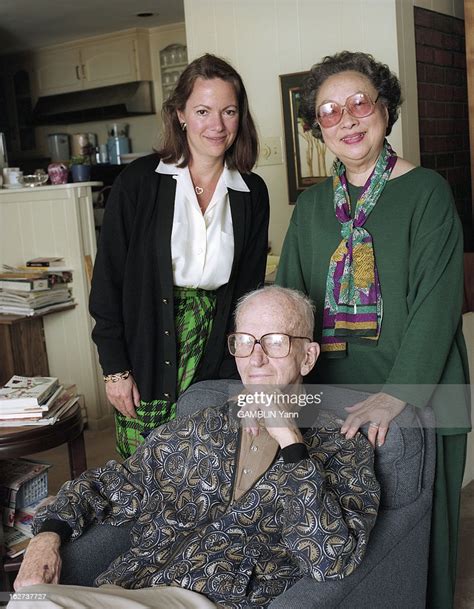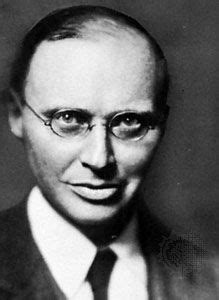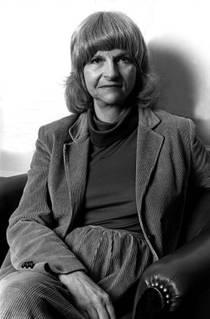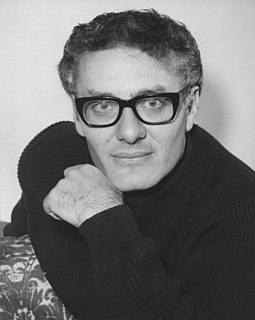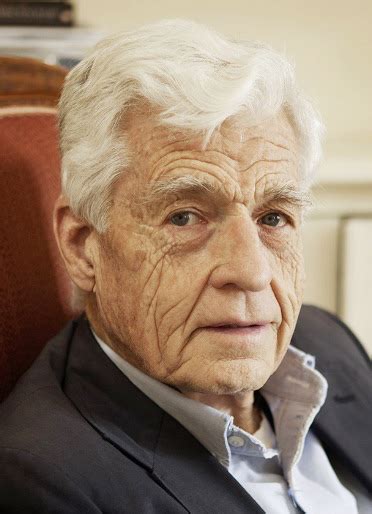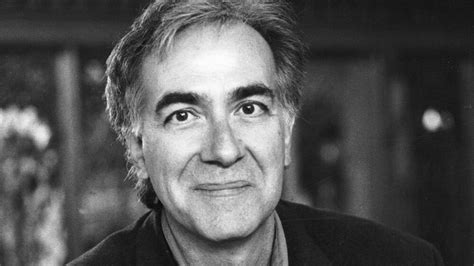Top 1039 Cautionary Tales Quotes & Sayings - Page 17
Explore popular Cautionary Tales quotes.
Last updated on December 18, 2024.
Why are so many of us enspelled by myths and folk stories in this modern age? Why do we continue to tell the same old tales, over and over again? I think it's because these stories are not just fantasy. They're about real life. We've all encountered wicked wolves, found fairy godmothers, and faced trial by fire. We've all set off into unknown woods at one point in life or another. We've all had to learn to tell friend from foe and to be kind to crones by the side of the road. . . .
Childhood is less clear to me than to many people: when it ended I turned my face away from it for no reason that I know about, certainly without the usual reason of unhappy memories. For many years that worried me, but then I discovered that the tales of former children are seldom to be trusted. Some people supply too many past victories or pleasures with which to comfort themselves, and other people cling to pains, real and imagined, to excuse what they have become.
I've always loved fairy tales. I think they perhaps led me to theater rather than the other way around. As a child I wanted to invent a machine that could record my dreams, so I could watch them in the morning; or hire someone to draw the things I had in my head, because I knew I didn't have the skill to do it myself. Theater is that machine. I can make these images come to life and actually walk around inside them for a while.
More wonderful than the lore of old men and the lore of books is the secret lore of the ocean. Blue, green, grey, white, or black; smooth, ruffled, or mountainous; that ocean is not silent. All my days I have watched it and listened to it, and I know it well. At first it told to me only the plain little tales of calm beaches and near ports, but with the years it grew more friendly and spoke of other things; of things more strange and more distant in space and time.
She always did like tales of adventure-stories full of brightness and darkness. She could tell you the names of all King Arthur's knights, and she knew everything about Beowulf and Grendel, the ancient gods and the not-quite-so-ancient heroes. She liked pirate stories, too, but most of all she loved books that had at least a knight or a dragon or a fairy in them. She was always on the dragon's side by the way.
A woman once described a friend of hers as being such a keen listener that even the trees leaned toward her, as if they were speaking their innermost secrets into her listening ears. Over the years I’ve envisioned that woman’s silence, a hearing full and open enough that the world told her its stories. The green leaves turned toward her, whispering tales of soft breezes and the murmurs of leaf against leaf.
The poet Muriel Rukeyser said the universe is composed of stories, not of atoms. The physicist Werner Heisenberg declared that the universe is made of music, not of matter. And we believe that if you habitually expose yourself to toxic stories and music, you could wind up living in the wrong universe, where it's impossible to become the gorgeous genius you were born to be. That's why we implore you to nourish yourself with delicious, nutritious tales and tunes that inspire you to exercise your willpower for your highest good.
Most Muggles lived in a world defined by the limits of what you could do with cars and telephones. Even though Muggle physics explicitly permitted possibilities like molecular nanotechnology or the Penrose process for extracting energy from black holes, most people filed that away in the same section of their brain that stored fairy tales and history books, well away from their personal realities: Long ago and far away, ever so long ago.
There was one person who greatly and directly benefited my career--my agent Virginia Kidd. From 1968 to the late nineties she represented all my work, in every field except poetry. I could send her an utterly indescribable story, and she'd sell it to Playboy or the Harvard Law Review or Weird Tales or The New Yorker--she knew where to take it. She never told me what to write or not write, she never told me, That won't sell, and she never meddled with my prose.
This is where you first failed us. You gave us minds and told us not to think. You gave us curiosity and put a booby-trapped tree right in front of us. You gave us sex and told us not to do it. You played three-card monte with our souls from day one, and when we couldn't find the queen, you sent us to Hell to be tortured for eternity. That was your great plan for humanity? All you gave us here was daisies and fairy tales and you acted like that was enough. How were we supposed to resist evil when you didn't even tell us about it?
The appeal of the spectrally macabre is generally narrow because it demands from the reader a certain degree of imagination and a capacity for detachment from every-day life. Relatively few are free enough from the spell of the daily routine to respond to rappings from outside, and tales of ordinary feelings and events, or of common sentimental distortions of such feelings and events, will always take first place in the taste of the majority; rightly, perhaps, since of course these ordinary matters make up the greater part of human experience.
Independently of the curious circumstance that such tales should be found existing in very different countries and languages, which augurs a greater poverty of human invention than we would have expected, there is also a sort of wild fairy interest in them, which makes me think them fully better adapted to awaken the imagination and soften the heart of childhood than the good-boy stories which have been in later years composed for them.
All cities are geological; you cannot take three steps without encountering ghosts bearing all the prestige of their legends. We move within a closed landscape whose landmarks constantly draw us toward the past. Certain shifting angles, certain receding perspectives, allow us to glimpse original conceptions of space, but this vision remains fragmentary. It must be sought in the magical locales of fairy tales and surrealist writings: castles, endless walls, little forgotten bars, mammoth caverns, casino mirrors.
I am still confused as to why they chose to lie and tried to make me a legend when the real heroics of my fellow soldiers that day were, in fact, legendary. People like Lori Piestewa and First Sergeant Dowdy who picked up fellow soldiers in harm's way. Or people like Patrick Miller and Sergeant Donald Walters who actually fought until the very end. The bottom line is the American people are capable of determining their own ideals of heroes and they don't need to be told elaborate tales.
What is a novel? I say: an invented story. At the same time a story which, though invented has the power to ring true. True to what? True to life as the reader knows life to be or, it may be, feels life to be. And I mean the adult, the grown-up reader. Such a reader has outgrown fairy tales, and we do not want the fantastic and the impossible. So I say to you that a novel must stand up to the adult tests of reality.
At the Neighborhood Playhouse School of Theatre, Sanford Meisner said, 'When you go into the professional world, at a stock theatre somewhere, backstage, you will meet an older actor, someone who has been around awhile. He will tell you tales and anecdotes, about life in the theatre. He will speak to you about your performance and the performances of others, and he will generalize to you, based on his experience and his intuitions, about the laws of the stage. Ignore this man!'
With smoking axle hot with speed, with steeds of fire and steam, Wide-waked To-day leaves Yesterday behind him like a dream. Still, from the hurrying train of Life, fly backward far and fast The milestones of the fathers, the landmarks of the past. But human hearts remain unchanged: the sorrow and the sin, The loves and hopes and fears of old, are to our own akin; And if, in tales our fathers told, the songs our mothers sung, Tradition wears a snowy beard, Romance is always young.
I had a mind to make a body of more or less connected legend, ranging from the large and cosmogonic, to the level of romantic fairy-story - the larger founded on the lesser in contact with the earth, the lesser drawing splendour from the vast backcloths - which I could dedicate simply to: to England; to my country. ... I would draw some of the great tales in fullness, and leave many only placed in the scheme, and sketched. The cycles should be linked to a majestic whole, and yet leave scope for other minds and hands, wielding paint and music and drama.
No, no, no, no! Come, let's away to prison: We two alone will sing like birds i' the cage: When thou dost ask me blessing, I'll kneel down, And ask of thee forgiveness: so we'll live, And pray, and sing, and tell old tales, and laugh At gilded butterflies, and hear poor rogues Talk of court news; and we'll talk with them too, Who loses and who wins; who's in, who's out; And take upon's the mystery of things, As if we were God's spies: and we'll wear out, In a wall'd prison, packs and sects of great ones, That ebb and flow by the moon.
She finds tales everywhere, in grains of sand she picks up from the garden, in puffs of smoke that drift out from the chimneys of the village, in fragments of smooth timber or glass in the jetsam. She will ask them, "Where did you come from? How did you get here?" And they will answer her in voices very like her own, but with new lilts and squeaks and splashes in them that show they are their own.
Love's arms were wreathed about the neck of Hope,
And Hope kiss'd Love, and Love drew in her breath
In that close kiss and drank her whisper'd tales.
They said that Love would die when Hope was gone.
And Love mourn'd long, and sorrow'd after Hope;
At last she sought out Memory, and they trod
The same old paths where Love had walked with Hope,
And Memory fed the soul of Love with tears.
The men began to trade tales of atrocities, first stories they had heard, then those they'd witnessed, and finally the things that had happened to themselves. A litany of personal humiliation, outrage, and anger turned sicklelike back to themselves as humor. They laughed then, uproariously, about the speed with which they had run, the pose they had assumed, the ruse they had invented to escape or decrease some threat to their manliness, their humanness. All but Empire State, who stood, broom in hand and drop-lipped, with the expression of a very intelligent ten-year-old.
Chyerti—that’s us, demons and devils, small and big—are compulsive. We obsess. It’s our nature. We turn on a track, around and around; we march in step; we act out the same tales, over and over, the same sets of motions, while time piles up like yarn under a wheel. We like patterns. They’re comforting. Sometimes little things change—a car instead of a house, a girl not named Yelena. But it’s no different, not really. Not ever.
I write at eighty-five for the same reasons that impelled me to write at forty-five; I was born with a passionate desire to communicate, to organize experience, to tell tales that dramatize the adventures which readers might have had. I have been that ancient man who sat by the campfire at night and regaled the hunters with imaginative recitations about their prowess. The job of an apple tree is to bear apples. The job of a storyteller is to tell stories, and I have concentrated on that obligation.
Kids know they can't make it alone, yet at the same time, built into each one of us, is a survival ethic. It says, "Nobody cares and you have to look out for yourself and if you don't, you'll die." These two things work against each other. I think most kids are very frightened of their parents, and that's what all fairy tales reflect: Parents will fail you and you'll be left on your own. But, of course, everything comes out right in the end and the parents take you back.
Science tells us what we can know but what we can know is little and if we forget how much we cannot know we become insensitive of many things of very great importance. Theology, on the other hand induces a dogmatic belief that we have knowledge where in fact we have ignorance and by doing so generates a kind of impertinent insolence towards the universe. Uncertainty in the presence of vivid hopes and fears is painful, but must be endured if we wish to live without the support of comforting fairy tales.
You see these dictators up on their pedestals, surrounded by the bayonets of their soldiers and the truncheons of their police. They're afraid of words and thought. ... They make frantic efforts to bar our thoughts and words. ... A state of society where men may not speak their mind - where children denounce their parents to the police - where a businessman or small shopkeeper ruins his competitor by telling tales about his private opinion. Such a state of society cannot long endure if it is continually in contact with the healthy outside world.
My writing has to excite people and depict or include their experiences. That's part of my process - to go out and interact with people. It's very much like an archival process. I understand that the Brothers Grimm would go out and get people talking so they could document folk tales that weren't being documented any other way. I try to offer a little bit of myself - some experience from my life that evokes stories in other people.
One of the basic motifs in fairy tales is that you find the poor and unfortunate along the side of the road, and when they beg for help, if you give it to them, you end up succeeding. If you don't give it to them, you end up being turned into a frog or something. It's something that's been around for thousands of years, a concept that's been around for thousands of years.
When we seek a textbook case for the proper operation of science, the correction of certain error offers far more promise than the establishment of probable truth. Confirmed hunches, of course, are more upbeat than discredited hypotheses. Since the worst traditions of "popular" writing falsely equate instruction with sweetness and light, our promotional literature abounds with insipid tales in the heroic mode, although tough stories of disappointment and loss give deeper insight into a methodology that the celebrated philosopher Karl Popper once labeled as "conjecture and refutation.
America is the wealthiest nation on Earth, but its people are mainly poor, and poor Americans are urged to hate themselves... It is in fact a crime for an American to be poor, even though America is a nation of poor. Every other nation has folk traditions of men who were poor but extremely wise and virtuous, and therefore more estimable than anyone with power and gold. No such tales are told by American poor. They mock themselves and glorify their betters.
Marjan. I have told him tales of good women and bad women, strong women and weak women, shy women and bold women, clever women and stupid women, honest women and women who betray. I'm hoping that, by living inside their skins while he hears their stories, he'll understand over time that women are not all this way or that way. I'm hoping he'll look at women as he does at men-that you must judge each of us on her own merits, and not condemn us or exalt us only because we belong to a particular sex.
What do you know about yourself? What are your stories? The ones you tell yourself, and the ones told by others. All of us begin somewhere. Though I suppose the truth is that we begin more than once; we begin many times. Over and over, we start our own tales, compose our own stories, whether our lives are short or long. Until at last all our beginnings come down to just one end, and the tale of who we are is done.
There yet remains but one concluding tale, And then this chronicle of mine is ended - Fulfilled, the duty God ordained to me, A sinner. Not without purpose did the Lord, Put me to witness much for many years, And educate me in the love of books. One day some indefatigable monk, Will find my conscientious, unsigned work; Like me, he will light up his ikon-lamp, And, shaking from the scroll the age-old dust, He will transcribe these tales in all their truth.
The importance of the romantic element does not rest upon conjecture. Pleasing testimonies abound. Hannah More traced her earliest impressions of virtue to works of fiction; and Adam Clarke gives a list of tales that won his boyish admiration. Books of entertainment led him to believe in a spiritual world; and he felt sure of having been a coward, but for romances. He declared that he had learned more of his duty to God, his neighbor and himself from Robinson Crusoe than from all the books, except the Bible, that were known to his youth.
I'm sure that there must have been times when you have read books or watched films and found yourself secretly wishing for the villain to win. Why? Isn't that against the rules by which our society lives? Why should you feel this way? It's simple, really; the villain is the true hero of these tales, not the well-intentioned moron who somehow foils their diabolical scheme. The villain get's all the best lines, has the best costumes, has unlimited power and wealth- why on earth would anyone not want to be the villain?
Seventeen years after its intial release, The Empire Strikes Back is still as thrilling and involving as ever. Because of the high quality of the original product, it doesn't show a hint of dating. Neither [Star Wars Episode IV: A New Hope nor Star Wars Episode VI: Return of the Jedi] were able to match the narrative scope of Empire, which today remains one of the finest and most rousing science fiction tales ever committed to the screen.
Try not to pay attention to those who will try to make life miserable for you. There will be a lot of those-in the official capacity as well as the self-appointed. Suffer them if you can't escape them, but once you have steered clear of them, give them the shortest shrift possible. Above all, try to avoid telling stories about the unjust treatment you received at their hands; avoid it no matter how receptive your audience may be. Tales of this sort extend the existence of your antagonists.
Though fairy tales end after ten pages, our lives do not. We are multi-volume sets. In our lives, even though one episode amounts to a crash and burn, there is always another episode awaiting us and then another. There are always more opportunities to get it right, to fashion our lives in the ways we deserve to have them. Don't waste your time hating a failure. Failure is a greater teacher than success.
In mythos and fairy tales, deities and other great spirits test the hearts of humans by showing up in various forms that disguise their divinity. They show up in robes, rags, silver sashes, or with muddy feet. They show up with skin dark as old wood, or in scales made of rose petal, as a frail child, as a lime-yellow old woman, as a man who cannot speak, or as an animal who can. The great powers are testing to see if humans have yet learned to recognize the greatness of soul in all its varying forms.
It is possible that our race may be an accident, in a meaningless universe, living its brief life uncared for, on this dark, cooling star: but even so - and all the more - what marvelous creatures we are! What fairy story, what tale from the Arabian Nights of the jinns, is a hundredth part as wonderful as this true fairy story of simians! It is so much more heartening, too, than the tales we invent. A universe capable of giving birth to many such accidents is - blind or not - a good world to live in, a promising universe. . . . We once thought we lived on God's footstool, it may be a throne.
If I'm away from you for more than an hour, I can't stop thinking about you. I carry you in my spirit. I pray for you more than I pray for myself...I know you don't believe in fairy tales. But, if you did, I'd want to be your knight in shining armor. You've been through so much. I don't want to see you hurt anymore. Now I may not be able to give you all that your used to. But I do know I can love you past your pain. I don't want you to worry about anything. You just wake up in the morning, that's all you have to do and I'll take it from there...There's one condition...You have to be my wife
Stories come from violence, they come from sex. They come from death. They come from the dark places that everyone has to go to, kind of wants to, or doesn't, but needs to deal with. If you raise a kid to think everything is sunshine and flowers, they're going to get into the real world and die. That's the reason fairy tales are so creepy, because we need to encapsulate these things, to inoculate ourselves against them, so that when we're confronted by the genuine horror that is day-to-day life we don't go insane.
Do you mean to say," asked Caspian, "that you three come from a round world (round like a ball) and you've never told me! It's really too bad for you. Because we have fairy-tales in which there are round worlds and I have always loved them … Have you ever been to the parts where people walk about upside-down?" Edmund shook his head. "And it isn't like that," he added. "There's nothing particularly exciting about a round world when you're there.
It’s my own fault, really. For believing in fairy tales. Not that I ever mistook them for actual historical fact, or anything. But I did grow up believing that for every girl, there’s a prince out there somewhere. All she has to do is find him. Then it’s on with the happily ever after. So you can only imagine what happened when I found out. That my prince really IS one. A prince. No, I really mean it. He’s an actual PRINCE.
Eyes Tell Stories But do they know how to craft fiction? Do they know how to spin lies? His eyes swear forever, flatter with vows of only me. But are they empty promises? I stare into his eyes, as into a crystal ball, but I cannot find forever, only movies of yesterday, a sketchbook of today, dreams of a shared tomorrow. His eyes whisper secrets. But are they truths or fairy tales? I wonder if even he knows.
I do worry that beginning cartoonists could feel somewhat strangled by the increasing critical seriousness comics has received of late and feel, like younger writers, that they have to have something to "say" before they set pen to paper. Many cartoonists feel even more passionate about this idea than I do, vehemently insisting that comics are inherently "non-art" and poop humor or whatever it is they think it is, but that attitude is a little like insisting that all modern writing should always take the form of The Canterbury Tales.
Infuriatingly stupid analysts - especially people who called themselves Arabists, yet who seemed to know next to nothing about the reality of the Islamic world - wrote reams of commentary [after 9/11]. Their articles were all about Islam saving Aristotle and the zero, which medieval Muslim scholars had done more than eight hundred years ago; about Islam being a religion of peace and tolerance, not the slightest bit violent. These were fairy tales, nothing to do with the real world I knew.
Oh, Black known and unknown poets, how often have your auctioned pains sustained us? Who will compute the lonely nights made less lonely by your songs, or by the empty pots made less tragic by your tales? If we were a people much given to revealing secrets, we might raise monuments and sacrifice to the memories of our poets, but slavery cured us of that weakness.
We sleep to time's hurdy-gurdy; we wake, if ever we wake, to the silence of God. And then, when we wake to the deep shores of time uncreated, then when the dazzling dark breaks over the far slopes of time, then it's time to toss things, like our reason, and our will; then it's time to break our necks for home. There are no events but thoughts and the heart's hard turning, the heart's slow learning where to love and whom. The rest is merely gossip, and tales for other times.
The great subversive works of children's literature suggest that there are other views of human life besides those of the shopping mall and the corporation. They mock current assumptions and express the imaginative, unconventional, noncommercial view of the world in its simplest and purest form. They appeal to the imaginative, questioning, rebellious child within all of us, renew our instinctive energy, and act as a force for change. This is why such literature is worthy of our attention and will endure long after more conventional tales have been forgotten.
Worship isn't destructive, Martin. I know that. I don't. I only know it's the core of his life. What else has he got? He can hardly read. He knows no physics or engineering to make to world real for him. No paintings to show him how others have enjoyed it. No music except television jingles. No history except tales from a desperate mother. No friends. Not one kid to give him a joke, or make him know himself more moderately. He's a modern citizen for whom society doesn't exist.
In the early morning hours, Hannah read at the table by the dim light of dawn. She leaned in close to the pages, chin resting on her folded arms, eyes racing over the words, like chasing butterflies over the hills, to catch as many as she could before going to work. She wondered at how such tales of magic could be contained by mere paper and ink for her to read again and again.
I feel any time you enter a dream world it's like you're working out things, it's all inside your mind and you're working it out, be it Dorothy in The Wizard of Oz, or the kids in Narnia, they go through this weird journey that's not real, and they're going through this journey psychologically. It's that journey of discovery, of getting onself together, that fantasy and fairy tales are so good at. And while some people still look upon them as completely unrealistic, for me they're more real than most things that are perceived as real.
If we assiduously cultivate our powers of exaggeration, perhaps we, too, shall obtain the Paradise of Liars. And there Raphael shall paint for us scores and scores of his manifestly impossible pictures... and Shakespeare will lie to us of fabulous islands far past 'the still-vex'd Bermoothes,' and bring us fresh tales from the coast of Bohemia. For no one will speak the truth there, and we shall all be perfectly happy.
In this life you have to be your own hero. By that I mean you have to win whatever it is that matters to you by your own strength and in your own way. Like it or not, you are alone in a forest, just like all those fairy tales that begin with a hero who’s usually stupid but somehow brave, or who might be clever, but weak as a straw, and away he goes (don’t worry about the gender), cheered on by nobody, via the castles and the bears, and the old witch and the enchanted stream, and by and by (we hope) he’ll find the treasure.
Birdscapes moves rather like those swallows, dipping and swerving to pick up all sorts of items of interest. Mynott tells plenty of good birding tales, but these serve mainly to set off trains of reflection. . . . Reading Birdscapes is like going birding with a learned, witty, and somewhat irreverent companion who isn't satisfied just to check things off. . . . [D]elightful to read on a journey or a housebound day, and [opens] fascinating new horizons for anyone who wants to enlarge his or her interest in birds.
Like an explorer returned from a distant planet or another dimension, Suki Kim has many extraordinary tales to tell, among them how different--and how awful--life is for those who live in North Korea. The devil is in the details here, for her gritty narrative focuses on everyday events to reveal how repression shapes daily life, even for the most privileged. Yet Kim also bears witness to that part of the human soul that no oppressor can ever claim.
As kids, my brother David and I longed for acceptance. We were desperate to belong. We would have been thrilled to see the pews of Jones's church in San Francisco, with blacks and whites sitting side by side. And Jim Jones's sermons on social justice and equality would have had much greater appeal to us than the soporific morality tales we were accustomed to hearing. Jones promised real racial equality. He promised to create a truly equal community in the jungle in Guyana.






